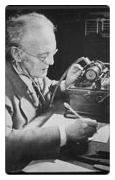Oklahoma museum pays homage to remarkable Canadian
September 25, 2012
A museum in Oklahoma is celebrating the extraordinary legacy of Canadian ethnographer Marius Barbeau, who travelled to the state one hundred years ago to document the culture of its Huron people. The materials he collected—now housed in the Canadian Museum of Civilization—represent a unique historical record that is helping descendants reconnect with their heritage.
Barbeau travelled to Oklahoma in 1911 and 1912. He was then working for the Geological Survey of Canada, studying the Aboriginal cultures of Eastern Canada. In Ontario, he met a Huron elder named Mary McKee who told him about her relatives in Oklahoma. She urged Barbeau to go there to learn more about the Huron culture.
He did so, meeting members of the Wyandotte Nation and Seneca-Cayuga tribe. Armed with an early recording device, he captured their language, legends and songs on wax cylinders. He also took photographs and detailed field notes, and purchased some of their belongings. He returned to Canada with a priceless cultural record. By accessing those collections, members of the Wyandotte Nation and Seneca-Cayuga tribe have learned long-forgotten details about their ancient culture.
The Sam Noble Museum in Norman, Oklahoma, is honouring his legacy with a special exhibition. The Gathering of Traditions: A Centennial Celebration of Dr. Charles Marius Barbeau in Oklahoma features objects and photographs from the Barbeau collections at the Museum of Civilization.
Barbeau worked at what is now the Museum of Civilization from 1911 until shortly before his death in 1969, coming to his office most days even after his official retirement in 1949. Collections that he assembled include some of the Museum’s most treasured artifacts and archival materials. Among them are thousands of recorded songs, folk tales and legends from French Canada and from Native communities in both Canada and the United States. His field notes and manuscripts fill more than 85 linear metres of shelving.
By all accounts, Barbeau was a brilliant and intensely curious man. He received a Rhodes Scholarship to study at Oxford University, and was among the first graduates in the new discipline of Anthropology. He also received many awards and honours in his lifetime and posthumously. In 1985, he was recognized as a “person of national historic importance” by the Historic Sites and Monuments Board of Canada.
Learn more on the life and work of Dr. Marius Barbeau.